
SCHOOLS: GATEKEEPERS OF THE FUTURE
The school sector is the engine room producing future citizens in all countries. The Saville Foundation encourages public schools across the country to continually improve best practices in teaching, financial planning, curriculum development and learning.
Our global partners support children to reach young adulthood with the basic skills to navigate life competently. This includes activities that honour our connection to the natural environment, enhancing creativity, emotional intelligence, and entrepreneurial thinking.
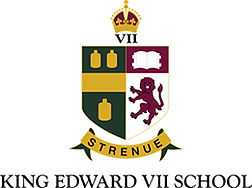
Education that transforms
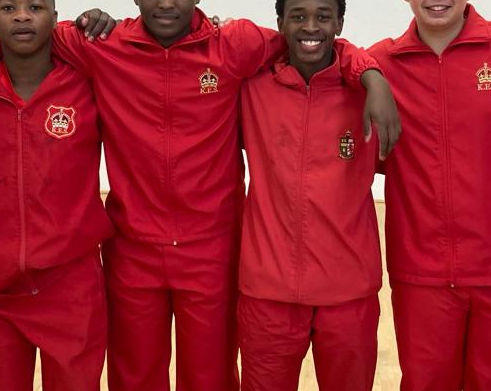
Who learns
-
Young People
-
The School
-
Families and Communities
-
Society
Young People
-
Respect for themselves, their peers, and teachers.
-
To collaborate with those different from them—through shared purpose, camaraderie, and rites of passage.
-
Confidence, emotional maturity, and a sense of self grounded in belonging.
-
How to form lifelong bonds through meaningful ritual, sport, and collective identity.
-
Experience the transformative power of inclusivity and purpose-driven culture.
The School
-
How to become an energetic organism that evolves through each intake of students—retaining legacy, values, and multiplicity of experience.
-
How to resource holistic development: physically, mentally, emotionally, spiritually.
-
Ways to become financially self-sustaining, e.g. through on-site academies (cybersecurity, financial literacy, insurance).
Families & Communities
-
Learn the power of relational schooling—where connection is prioritised, not just content.
-
Witness children thrive and feel pride in their unfolding potential.
-
Reclaim a sense of collective participation in education, not as consumers, but co-holders.
Society
-
Gains young men with emotional intelligence, inner strength, and civic-minded values.
-
Benefits from individuals who understand how the world works—and how to operate within it from a place of respect, awareness, and contribution.
-
Sees how the quality of character changes the future trajectory of South Africa.
Exponential effect
Young people gain respect for themselves and others, develop emotional maturity, and build confidence grounded in belonging. This energy strengthens the school itself, evolving its culture and values with each new intake. Families and communities feel pride and renewed connection as they witness children thrive. And society benefits from young men who carry emotional intelligence, civic awareness, and the character to shape a stronger future.
Our role
-
Bursaries (alma mater of both TSF's founding philanthropist and CEO
-
Strategic guidance on ring-fencing assets and strengthening financial mechanisms — including endowments and BEE structures, strengthening the school’s ability to operate like a mission-driven, self-sustaining business.
-
Ongoing engagement to use as blueprint to spread and share the successful model with other public schools across SA

NEW PROJECT
Safe Schools, Better Futures: Healing Spaces for Growing Minds
Who learns
-
School Principals & Leadership
-
Educators
-
Youth
-
Alumni & Local Communities
-
CAP (Community Active Protection)
Exponential effect
From deteriorating public infrastructure to revitalised centres of excellence, Edusafe shows that change is not only possible—it’s replicable.
With an annual investment of R3 million per school, the model catalyzes a chain reaction: student attendance rises, parent trust returns, alumni re-engage, and teacher retention improves. The school's internal transformation radiates outward into the community, restoring hope and fostering civic responsibility.
Each upgraded school becomes a proof point that infrastructure is not just physical—it’s emotional and psychological too. A clean, ordered, aspirational environment doesn’t just look different; it feels different.
The effect is contagious: learners become agents of excellence, communities regain belief in the public education system, and the blueprint becomes scalable. Edusafe is not just fixing buildings—it’s fixing belief systems.
What they learn
School Principals & Leadership
-
How to lead systemic transformation with integrity, motivation, and accountability—even under pressure and in resource-constrained environments.
-
To see first-hand how clear governance and mentorship can restore order, raise expectations, and ignite sustainable change.
Educators
-
The impact of operating in a dignified, secure, and well-maintained space.
-
That teaching becomes easier when morale is high, facilities are functional, and mutual respect is built into the culture.
Youth
-
That they matter. Simply being in a clean, safe, and cared-for environment shifts self-perception.
-
How to engage more, show up more, and carry forward the values of dignity, discipline, and aspiration embedded in the school’s physical and emotional climate.
Alumni & Local Communities
-
That investment—financial, emotional, and strategic—can bring public schools back to life. As transformation becomes visible, pride returns.
-
Alumni see their legacy honoured and communities see their role as co-architects of school success.
CAP (Community Active Protection)
-
That schools can act as stabilising hubs in high-risk areas.
-
That their involvement in securing school perimeters ripples outward, reducing broader community crime rates and building trust in collaborative safety models.
Our role
-
Bursaries (alma mater of both TSF's founding philanthropist and CEO
-
Strategic guidance on ring-fencing assets and strengthening financial mechanisms — including endowments and BEE structures, strengthening the school’s ability to operate like a mission-driven, self-sustaining business.

Entrepreneurship Education & Economic Imagination

Who learns
-
Youth
-
Teachers
-
Parents
-
NGOs
-
Communities
-
Policymakers
What they learn
Young People
-
How to set up and run school-based businesses that are youth-led, profitable, and educational.
-
The ability to gain financial literacy, creativity, and practical entrepreneurial skills.
-
How to develop agency, independence, and the ability to support themselves economically.
-
How to build soft skills: communication, teamwork, problem-solving, and initiative.
Educators
-
How to facilitate enterprise-based learning that is experiential and student-driven.
-
The ability to gain tools to guide real-world application of core curriculum through business activities.
-
How to shift pedagogy from content-delivery to entrepreneurial mentorship.
-
To understand the power of small catalytic investments to trigger widespread engagement and impact.
Communities
-
To engage in student-led enterprises as mentors, customers, and collaborators.
-
To see schools as engines of local innovation and economic participation.
-
To begin to reimagine youth not as dependents, but as contributors.
Policy Stakeholders
-
How to discover low-cost, scalable models of enterprise education with systemic impact.
-
To recognise that entrepreneurial learning fosters future-ready citizens, not cogs in outdated systems.
-
To witness how competition and creativity, when embedded in education, drive local solutions to global challenges.
Exponential effect
When young people are supported to create and run their own school-based businesses, they stop seeing themselves as passive recipients of education and start behaving like active economic contributors. The impact ripples: students earn income while learning, educators shift toward mentorship-based teaching, and communities become part of the learning loop. Competitions and catalytic models mean a small injection of resources generates widespread, scalable benefit. With every successful youth-led enterprise, a new future is prototyped—one where education doesn’t just prepare young people to enter a system, but empowers them to transform it.
Our role
-
Seeding and supporting TAMTF since 2007, TSF have catalysed a number of successful initiatives with TAMTF including SEC, PAA, ETP4i and more recently the exciting EYE challenge for 3-6 year olds.
-
We have played a full spectrum strategic partnership role since 2007, sometimes with tough love, but always with consistent input ensuring the students thrive as our core raison d’etre.
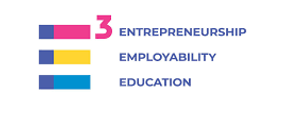
DB-E3 - Entrepreneurship for youth: Curriculum for a changing world

Who learns
-
School children
-
Teachers
-
School Leaders & Parents / Guardians
-
NGOs
-
Policymakers
-
Tech Development Teams
What they learn
School children
-
Emotional intelligence
-
How to develop the skills and entrepreneurial mindsets they need to flourish in a constantly changing world
-
Problem-solving through real-world, contextual projects.
-
Critical thinking and reasoning when addressing community or personal challenges.
-
Creativity and innovation while designing project outputs like posters, interviews, models, or presentations.
-
Collaboration and teamwork, especially through group-based learning experiences.
-
Communication skills, including writing, presenting, and discussing their work publicly.
-
Entrepreneurial thinking, such as creating and pitching business ideas or micro-enterprises.
-
Empathy and social responsibility through community-focused projects.
-
Resilience and curiosity
-
Applying core academic content in a hands-on, engaging way (e.g. integrating Life Skills, Maths, and Language).
Teachers
-
Project-based learning (PBL) methodology and how to implement it within the CAPS curriculum.
-
How to design and facilitate student-centred learning experiences.
-
Strategies for promoting learner agency and independence.
-
Assessment methods for projects and soft skills development
-
Using TeacherConnect for continuous professional development (CPD) and accessing SACE-accredited training.
-
Cultivating a growth mindset and reflective teaching practices.
-
Blending content and skills, rather than delivering rote information.
School Leaders & Parents / Guardians
-
How to support and showcase learner projects, reinforcing school-community ties.
-
Techniques to encourage active parenting and learner support at home.
-
Understanding the value of skills-based education beyond traditional academics.
-
Participating in or leading community-based exhibitions, interviews, or events.
-
Collaborating with teachers and learners to foster a culture of entrepreneurship and responsibility.
NGOs
-
Practical experience in the multiplier effect of educational innovation across diverse school contexts.
-
Co-developing resources for play-based and experiential learning.
-
Conducting training-of-trainers and coaching teachers in mindset shifts.
-
Gathering impact evidence and adapting interventions based on field insights.
-
Working with government and funders to maintain programme sustainability.
Policymakers
-
Best practices for system-wide curriculum transformation toward 21st-century learning.
-
How to support policy alignment and innovation integration across all schools.
-
Use of real-time data dashboards for education planning and learner outcomes.
-
Insights from grassroots feedback loops (from classrooms, principals, and provincial implementers).
-
Coordinating cross-sector partnerships for educational reform.
-
How to integrate entrepreneurial education into the core of the education system
Tech Development Teams
-
Designing and maintaining zero-rated, mobile-first platforms for teacher development.
-
Creating user-friendly training content integrated into WhatsApp or other platforms.
-
Real-time data collection and dashboard reporting for learning progress and engagement.
-
Supporting remote helpdesks for thousands of teachers.
-
Insights into digital uptake among educators and learners, especially in under-resourced contexts
Exponential effect
DBE-E³ exists to support policymakers in South Africa’s Department of Basic Education to integrate entrepreneurial education into the core of the system—because tomorrow’s world won’t be navigated with yesterday’s instruction manuals. As technology and AI accelerate the pace of change, schools can no longer afford to teach for predictability. What matters now is resilience—emotional, intellectual, and social.
If a young person is equipped to meet the unexpected, they’re already ahead. Not just for themselves, but for those around them.
This is how exponential impact unfolds: Generations of learners who think critically, solve collaboratively, and build ventures with purpose—leaving school with the mindset to add value in any context, and the courage to try.
What could be more exponential than that?
Our role
• Engaging with E3 early on their important journey, we have played galvanising behind the scene roles with the management team, as well as providing capital to enable national policy discussion forums to ensure the understanding and buy-in of the national education departments leadership
• Co‑funded the first policy dialogue of its kind in 2025, bringing together policymakers, DBE leaders, NGOs, and educators to discuss education policy, innovation, and entrepreneurship within E³.
• National and provincial stakeholder engagement
• Partnership Activation & Ecosystem Building
• Act as a connector: Using our networks to bring in additional partners—like philanthropic funders, sector NGOs, research institutes, or international bodies—to strengthen E³.
• Facilitate regular reflection sessions with the E³ implementation team (e.g. DBE officials, TeacherConnect leads, participating NGOs). These sessions include deep listening, capturing on-the-ground realities, feedback loops, and harvesting lessons. The insight gained informs how we calibrate strategy, propose new initiatives, or mobilise additional resources.
• Monthly strategic update and insight meetings with leadership team - facilitative & Advisory Support- guidance on engagement, governance, and sustainability
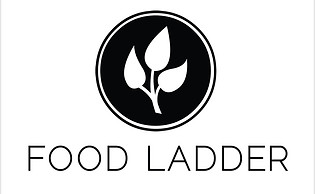
Local Food, Global Thinking
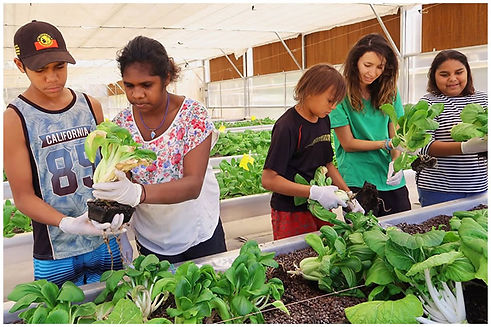
Who learns
-
Individuals & households
-
Community groups & local councils
-
NGOs & sector partners
-
Policymakers & public health officials
Exponential effect
When communities learn to take the lead—and authorities listen—a replicating cycle of resilience begins. Individuals move from crisis to capability. Groups shift from service-dependence to self-organisation. Local councils and NGOs start designing with people rather than for them. Over time, cities rethink food security—not as handouts, but as shared agency.
Food Ladder has sparked new public-civic collaboration, reshaped food policy, and made neighbourhood projects an integral part of local wellbeing strategies The result? A regenerative community ecosystem that tackles food insecurity not through food banks alone, but through capacity, connection, and trust..
What they learn
Individuals & Households
-
How to assess & define their own food needs beyond crisis aid.
-
How to move from food dependence to resilience through local nutrition, cooking, and budgeting support.
Community Groups & Councils
-
How to see food not just as logistics, but as social glue—activating cooking, sharing, and social eating as tools for cohesion
-
How to structure responses across the three ‘rungs’—catching, capacity-building, and community-led change—within local contexts 0.
NGOs & Third Sector Partners
-
How to embed the Food Ladders approach into their programming—to shift from charity to long-term resilience building
Policymakers & Public Health Actors
-
How to operationalise bottom‑up community insight into food strategies and policy frameworks
-
How to coordinate across departments and embed food resilience as a shared local authority responsibility
Our role
-
Provision of seed and growth capital as FL expands.




